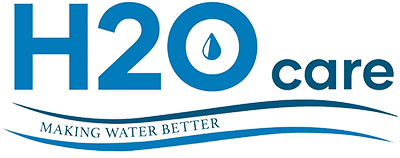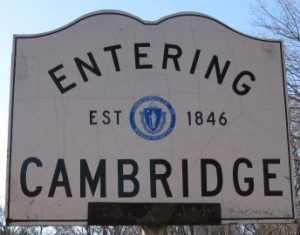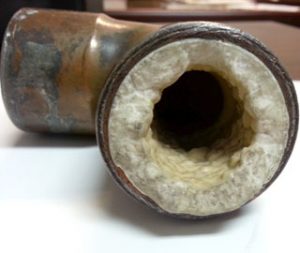A water softener is an effective solution to hard water in your Cambridge home or business. Water hardness refers to the mineral content of water, notably calcium and magnesium. Cambridge Water Department’s water is “slightly to moderately hard” and varies only slightly throughout the city. Hardness also varies slightly by seasons of the year. When using dishwashers, you may notice a slight increase in “spotting” on glassware, flatware or white residue in kitchenware, showers and other plumbing fixtures. This residue consists mainly of calcium carbonate, the same ingredient found in anti-acid products and not a known health risk.
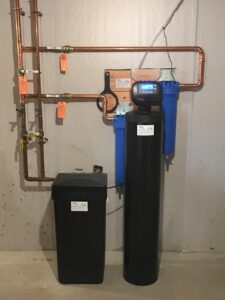
High Efficiency Water Softener
OTHER AFFECTS OF HARD WATER, IRON, MANGANESE
Hard water affects include corrosion and scaling inside pipes, staining throughout the home’s showers, bathtubs, and sinks and destruction of hot water heaters way ahead of their useful life (scale build-up inside hot water heaters can insulate the temperature sensor inside the tank causing them to work much harder to bring the temperature up to the set level). Iron and manganese in water can create rusty or black/brown staining and corrosion in the home as well. For more on hard water, see hard water usgs.
BAD TASTES & ODORS, SEDIMENT
Additionally, there are many other types of systems to remove bad tastes & odors, sediment and many other objectionable minerals and contaminants in the water (chlorine smell & taste, for example). Depending on the estimated water volume usage, there are cartridge or larger point of entry solutions for this.
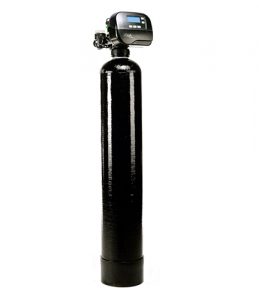
Sediment & Carbon Filtration
Starting with a water test will lead to the right approach. For more information on common bad odors & tastes in our region, see the link at http:/bad-odor-taste/. For a link to the town water division, see https://www.cambridgema.gov/waterqualityreports.
